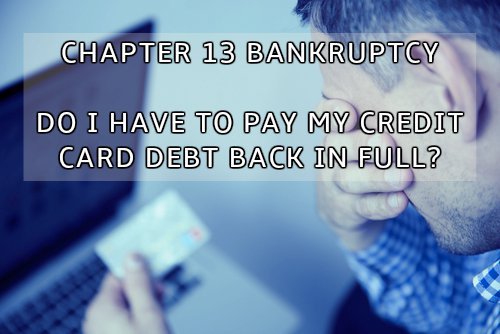In our practice, we see many people that felt like they were in between a rock and a hard place, because they had a decent job and income, but also a load of high interest credit card debt that never seems to go down. Sometimes these people thought that they would not qualify for bankruptcy. We are here to tell you that even people with good paying jobs have options in bankruptcy to stop unrelenting credit card debt.
Household Income vs. Median Incomes per State
One of the major factors that determines what chapter of bankruptcy a person or married couple are eligible to file is household income. An income based test called the “means test” compares household income to average or “median” incomes for household size in the state. At a certain income level, a Chapter 7 or “straight” bankruptcy to eliminate debts may not be available. What is available to help with unsecured debt such as credit cards and medical bills if Chapter 7 is not an option? Enter Chapter 13 bankruptcy.
Automatic Stay – Protection from Creditors
In a Chapter 13 bankruptcy, just like a Chapter 7, Court ordered protection from creditors, called the “automatic stay” goes into effect as soon as we file a case. Creditors can no longer call, send letters, file or continue lawsuits, garnish wages, or do anything to collect the debt. A Chapter 13 is a reorganization where we can force creditors to take what the bankruptcy law says that you can afford to pay over a three to five year period of time. Most people in Chapter 13 bankruptcy pay a small percentage of unsecured debts, such as credit card balances, back through their plan and ultimately receive a discharge on the remaining balances at the end of the plan. It is a common misconception that Chapter 13 repayment plans require a full repayment of unsecured debts. In the vast majority of Chapter 13 bankruptcies, unsecured creditors, such as credit card debts, receive cents on the dollar. Balances left on credit card debts are discharged, or wiped out, at the end of the plan.
Means Test
This certainly begs the question of what percentage of debt must be paid back through a reorganization. The main factor that drives what a debtor must pay back to unsecured creditors is the income based “means test” mentioned above. That test used a calculation to determine what the bankruptcy law considers disposable income available to pay creditors. Most people in Chapter 13 pay very little back to unsecured debts like credit cards and medical bills.
In addition, Chapter 13 bankruptcy can deal with issues surrounding secured debts such as car loans and mortgages. A Chapter 13 can also provide assistance with tax debts and child support.
Sawin & Shea – Indianapolis Bankruptcy Attorneys
Call Indianapolis bankruptcy attorneys Sawin & Shea at 317-759-1483 for a free consultation to see how Chapter 13 bankruptcy can relieve some of the pressure that high interest debt is causing you.



